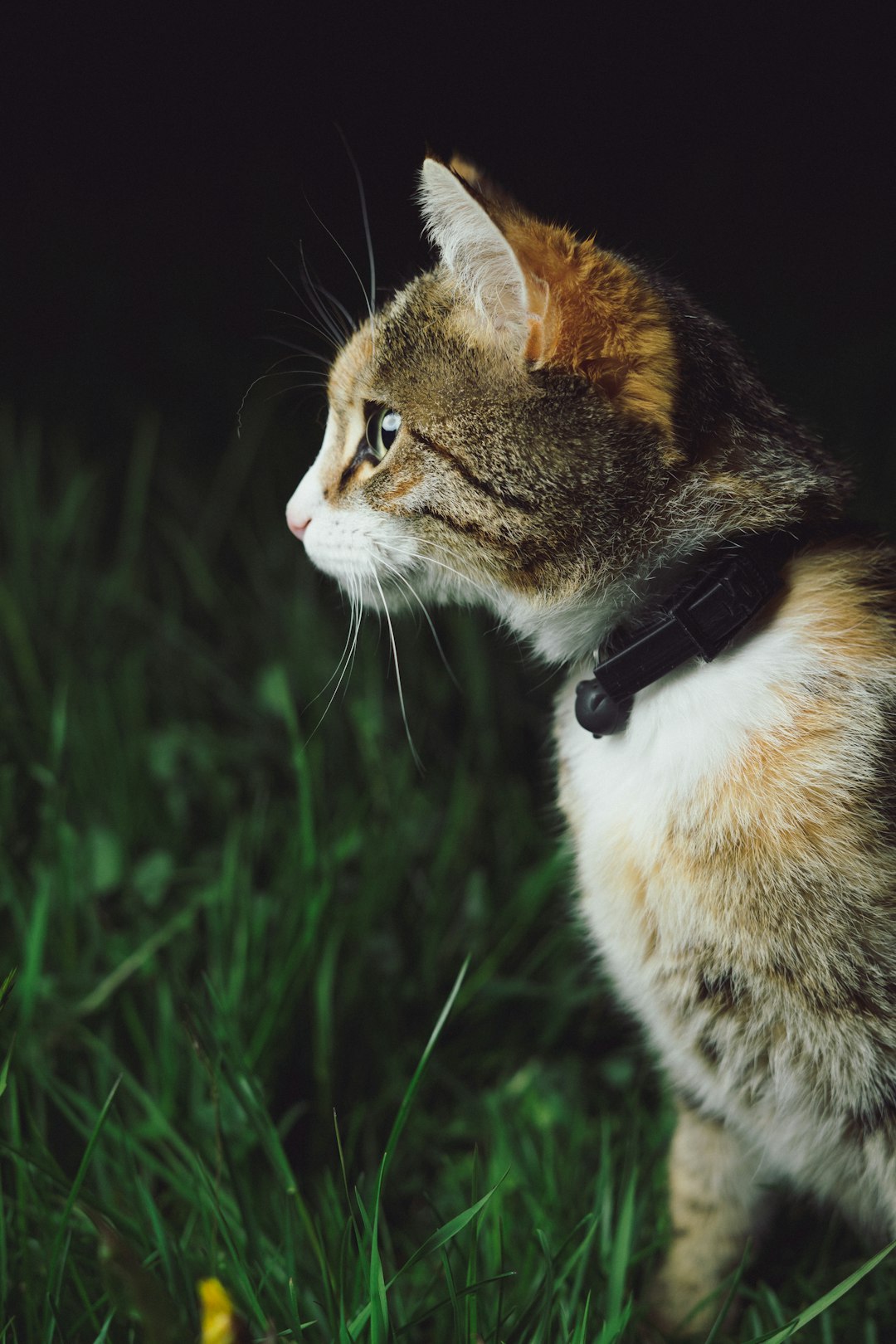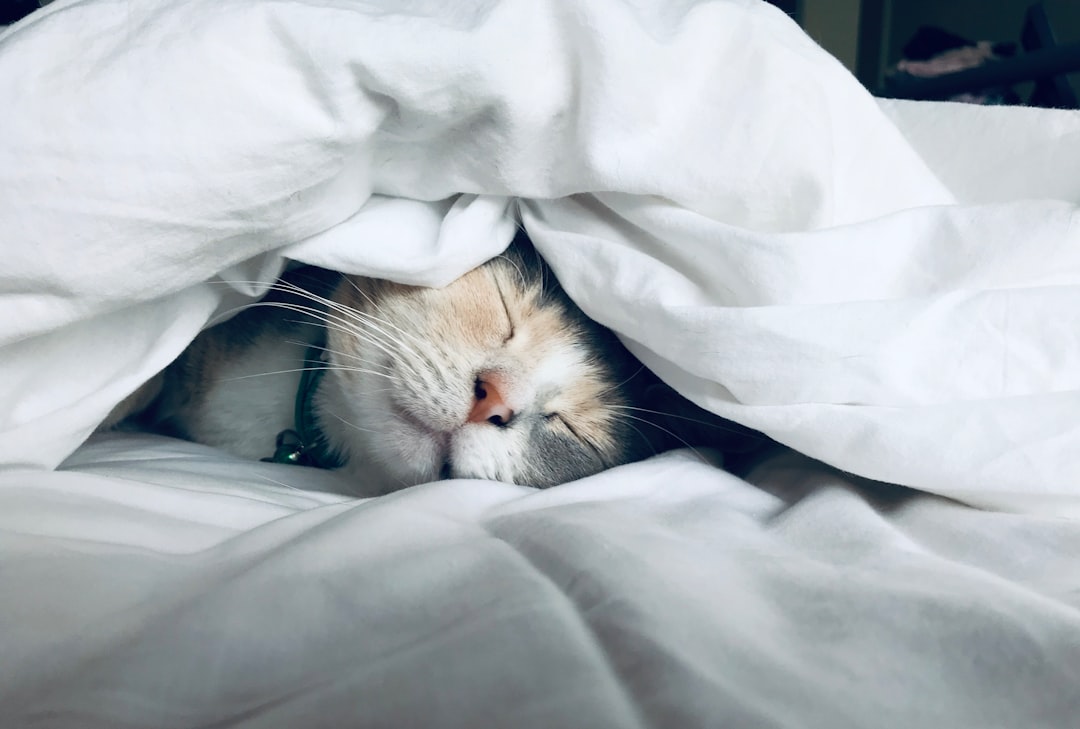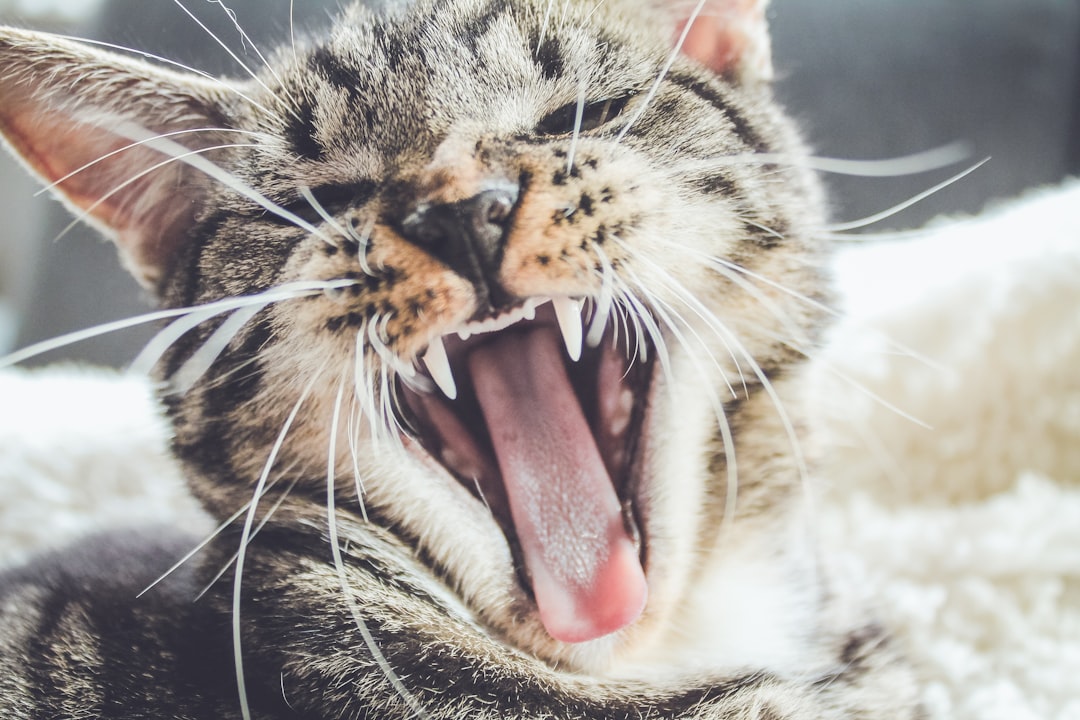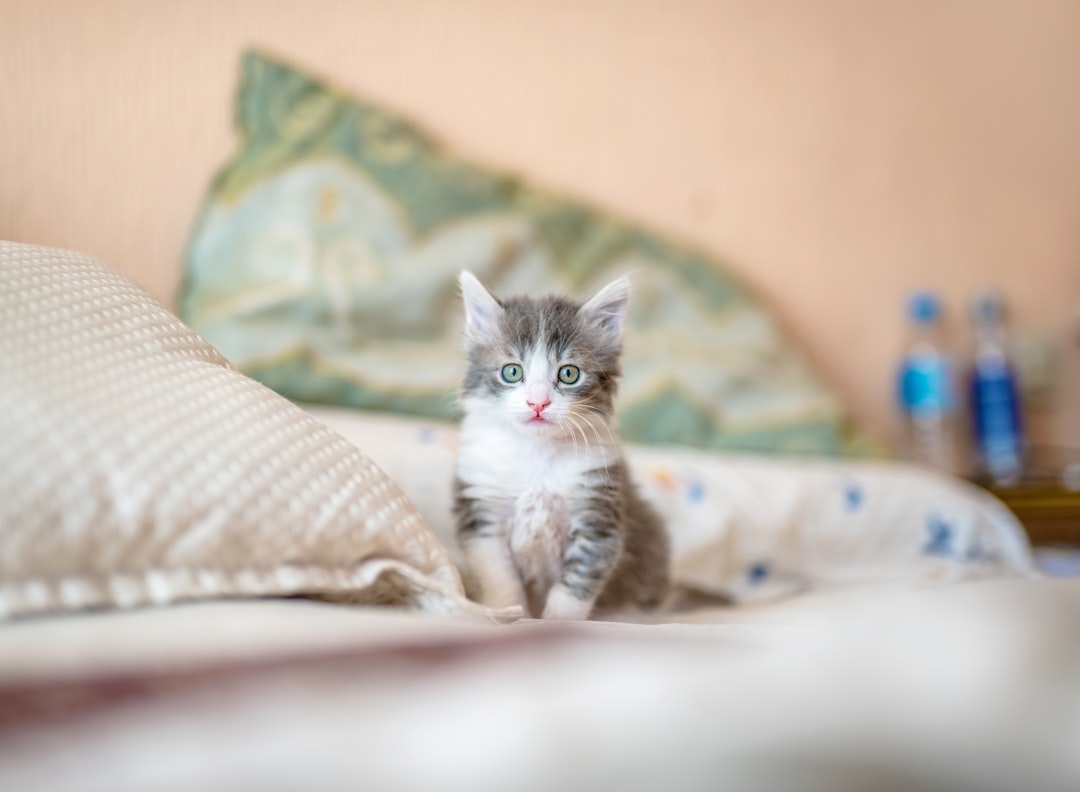If you’ve ever found yourself wondering, "why is my cat sneezing?", you’re not alone. Sneezing in cats can stem from various causes, ranging from minor irritants to more serious health issues. Understanding these reasons is crucial for ensuring your feline friend’s wellbeing. Alongside identifying the common causes, it’s essential to recognize accompanying signs and know when to consult a veterinarian. Discovering effective home remedies and preventative measures will further empower you to help your cat breathe easier and stay healthy. Let’s explore the key factors behind those adorable sneezes.
Common Causes of Sneezing in Cats
If you ever find yourself asking, why is my cat sneezing, it’s essential to understand the different factors at play. Sneezing in cats can arise from several common causes, including:
- Allergies: Just like humans, cats can develop allergies to dust, pollen, or certain foods. Symptoms may include sneezing and watery eyes.
- Infections: Bacterial or viral infections, such as feline herpesvirus, can lead to respiratory issues, prompting sneezing.
- Irritants: Household products, strong odors, or cigarette smoke can irritate a cat’s nasal passages, causing sneezing.
- Nasal Obstructions: Foreign bodies, like grass or small toys, may find their way into a cat’s nasal cavity, resulting in sneezing.
- Dental Issues: Believe it or not, dental problems can sometimes contribute to nasal congestion, explained through sneezing.
Recognizing these causes can help you identify when and why your cat is sneezing. If the sneezing persists or involves additional symptoms, it may be time to consult a veterinarian. Understanding why is my cat sneezing can lead to effective solutions for your furry friend.

Signs That Accompany Sneezing
When you observe your cat sneezing, it’s essential to watch for accompanying signs to determine the severity of the situation. Knowing "why is my cat sneezing" often involves identifying additional symptoms that could indicate an underlying issue. Here are some common signs to look out for:
- Nasal Discharge: Mucus can be clear, yellow, or green, suggesting different causes for sneezing.
- Coughing: If your cat coughs alongside sneezing, it may indicate respiratory distress.
- Watery Eyes: Excessive tearing can signal allergies or infections.
- Loss of Appetite: A decrease in eating can indicate discomfort or illness.
- Fatigue: Lethargy or lack of energy may point to a more serious health concern.
- Fever: An elevated temperature is a sign of infection and should alert you to seek veterinary advice.
By noting these signs along with the question of "why is my cat sneezing," you can better understand your cat’s condition. If your feline friend displays multiple symptoms, consult a veterinarian promptly for a thorough evaluation.
When to Consult a Veterinarian
If you’re wondering, why is my cat sneezing? It’s important to know when to seek professional help. While occasional sneezing can be normal, certain signs indicate that your feline friend may need veterinary attention.
Look out for these concerning symptoms:
- Prolonged Sneezing: If your cat sneezes consistently for more than a few days.
- Nasal Discharge: Thick or discolored fluid coming from the nose.
- Difficulty Breathing: Signs of struggle or labored breathing warrant immediate attention.
- Loss of Appetite: Not eating or drinking can signal a more serious issue.
- Lethargy: A significant decrease in energy or interest in activities could be concerning.
- Coughing or Fever: These symptoms could indicate a more severe respiratory infection.
In summary, if your cat exhibits any of these symptoms alongside her sneezing, don’t hesitate—consult a veterinarian. Understanding why is my cat sneezing and responding swiftly can protect her health and well-being.
Home Remedies for Sneezing Cats
If you’ve been wondering, "why is my cat sneezing?" there are several home remedies you can try to alleviate their discomfort. Here’s a quick list of effective methods:
Steam Therapy: Create a steam-filled environment by running a hot shower and letting your cat sit in the bathroom. The moisture helps clear nasal passages.
Humidifier Use: Place a humidifier in your cat’s space to maintain moisture in the air, which can ease respiratory discomfort.
Nasal Rinse: Using a saline spray is a gentle way to clear your cat’s sinuses. Administer it carefully to avoid stress.
Dietary Changes: Incorporate omega-3 fatty acids into their diet. These can improve overall respiratory health.
Essential Oils: Consider using cat-safe essential oils, such as lavender or chamomile, which can promote relaxation and soothe inflammation when diffused properly.
Before trying these remedies, observe your cat’s sneezing patterns. If it persists or worsens, consult a veterinarian. Remember, knowing "why is my cat sneezing" can lead to effective solutions and ensure your feline stays happy and healthy.

Preventative Measures for Your Cat’s Health
Understanding why is my cat sneezing is essential, but taking proactive steps can help minimize sneezing episodes. Here are some effective preventative measures you can consider:
Regular Cleaning: Dust and allergens can contribute to respiratory issues. Keep your home clean by:
- Vacuuming frequently
- Using air purifiers
- Regularly washing bedding and toys
Proper Nutrition: A balanced diet strengthens your cat’s immune system. Opt for:
- High-quality cat food
- Supplements recommended by your veterinarian
Minimize Exposure to Allergens: Identify and reduce exposure to potential allergens such as:
- Pollen from plants
- Strong scents from candles or air fresheners
Routine Veterinary Visits: Schedule regular check-ups for:
- Vaccinations
- Health assessments to catch early signs of respiratory issues
By implementing these preventative measures, you can significantly reduce the likelihood of your cat experiencing sneezing episodes. Remember, keeping an eye on your feline friend’s overall health is crucial to addressing the question, why is my cat sneezing?
Understanding Allergies in Cats
If you’re wondering why is my cat sneezing, allergies may be the culprit. Cats can experience various allergens that trigger sneezing and other symptoms. Here are some common allergenic triggers:
- Pollen: Seasonal allergies can arise during specific times of the year.
- Dust Mites: These tiny creatures thrive in homes, especially in carpets and bedding.
- Mold: Fungi can produce spores that affect your cat’s respiratory system.
- Food Ingredients: Proteins or additives can cause an allergic response.
Symptoms of Allergies:
Watch for these signs alongside sneezing:
- Itchy skin, resulting in excessive grooming
- Watery eyes or redness
- Ear infections
- Vomiting or diarrhea (in food allergies)
In summary, when pondering why is my cat sneezing, consider allergies as a potential cause. Identifying and eliminating allergens can significantly improve your cat’s well-being. Always consult your veterinarian for the best course of action to help your furry friend.
Respiratory Infections in Feline Friends
When pondering why is my cat sneezing, respiratory infections often come to mind. These infections can stem from various viral or bacterial sources and typically present with other symptoms. Understanding these infections is crucial for your cat’s health. Here’s what you should know:
Common Types of Respiratory Infections:
- Feline Viral Rhinotracheitis (FVR): Caused by the herpesvirus, it is quite contagious among cats.
- Feline Calicivirus (FCV): Similar to FVR, this virus can lead to sneezing and other respiratory issues.
- Bacterial Infections: Secondary infections can develop after viral illnesses, exacerbating sneezing.
Symptoms to Look For:
- Excessive sneezing
- Nasal discharge (clear, yellow, or green)
- Coughing
- Loss of appetite
- Lethargy
Comparison of Symptoms:
| Symptom | FVR | FCV | Bacterial Infection |
|---|---|---|---|
| Sneezing | ✔️ | ✔️ | ✔️ |
| Nasal Discharge | ✔️ | ✔️ | ✔️ |
| Coughing | ✔️ | ✔️ | ❌ |
| Fever | ✔️ | ✔️ | ✔️ |
If you notice persistent sneezing alongside these symptoms, consult your veterinarian. Quick intervention can help your furry friend recover faster and determine why is my cat sneezing due to an infection.

The Importance of Regular Veterinary Check-ups
When it comes to your feline friend, ensuring their health is paramount. Regular veterinary check-ups play a crucial role in this process, especially if you’re wondering, "why is my cat sneezing?" Here are some reasons why these visits are essential:
Early Detection: Regular exams can identify underlying health issues before they become serious. This is particularly important for respiratory conditions that can cause sneezing.
Vaccinations: Keeping your cat up-to-date on vaccinations can prevent illnesses that may lead to sneezing, such as feline viral rhinotracheitis.
Allergy Management: A vet can help determine if your cat’s sneezing is due to allergies and suggest appropriate treatments or lifestyle adjustments.
Health Monitoring: Tracking your cat’s weight and overall condition allows for timely interventions if your cat displays sudden changes or symptoms.
Behavioral Insights: Vets can offer advice on managing behaviors related to sneezing, ensuring your cat stays happy and healthy.
In summary, if you find yourself frequently asking, "why is my cat sneezing," regular check-ups with your veterinarian are key to understanding and resolving the issue effectively.
Frequently Asked Questions
What are the common causes of a cat sneezing?
Cats can sneeze for a variety of reasons. Some common causes include respiratory infections, allergies to dust, pollen, or certain food ingredients, and irritants like cigarette smoke or strong fragrances. Additionally, dental diseases can also lead to sneezing, as they can affect the nasal passages. Environmental stressors or changes in temperature can also trigger sneezing, making it crucial to observe other symptoms that may accompany sneezing.
How can I tell if my cat’s sneezing is serious?
To determine if your cat’s sneezing is serious, monitor for additional symptoms such as nasal discharge, lethargy, coughing, loss of appetite, or difficulty breathing. If sneezing is persistent or accompanied by any of these symptoms, it may indicate a more serious underlying issue, such as a respiratory infection, and veterinary consultation is recommended. Regular observation and maintaining a log of any changes in behavior can be helpful for your vet assessment.
What home remedies can I try to alleviate my cat’s sneezing?
There are several home remedies that may help alleviate your cat’s sneezing. One effective approach is to use a humidifier in the room where your cat spends most of its time to keep the air moist, which can ease nasal irritation. Additionally, ensure that your cat stays hydrated and provide a warm, cozy environment to help them rest. Regularly cleaning your home to reduce allergens and irritants, such as dust and pollen, can also be beneficial. However, consult with a vet before trying any remedies.
When should I take my cat to the vet for sneezing?
You should take your cat to the vet for sneezing if the condition persists for more than a few days or is accompanied by other concerning symptoms such as lethargy, difficulty breathing, or unusual nasal discharge. If your cat’s eating or drinking habits change or if they exhibit signs of distress, it is also advisable to seek veterinary care. Prompt attention can ensure that any underlying issues are addressed early.



